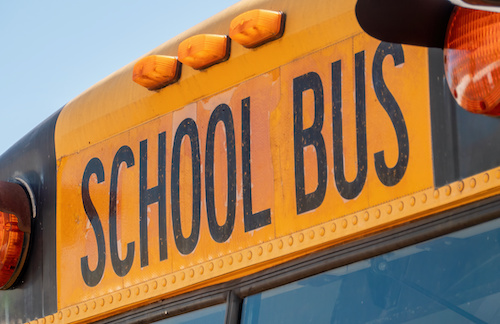Key points:
Since 1869, when Massachusetts pioneered the integration of transportation into public education, school transportation has evolved to continuously enhance the practicality and safety of how children are transported to school.
As technology advanced, buses transitioned from horse-drawn to “horseless” propulsion. Another significant milestone occurred in 1927, when a Ford Model T was used to construct a bus structure, marking a departure from wood, which had been the primary material, to more durable alternatives.
Fast forward to today, nearly a century since its inception, the yellow school bus is witnessing its next transformative chapter. Modernization–what I term as “Uberization”–is at the forefront, enhancing the safety and efficiency of school transportation and providing parents and bus drivers with the critical tools they need to track children’s locations every step of the way, from home to school and back, much like services such as Uber. Like Uber and other ride share services, these implementations are made to be personalized to give student passengers, their parents, and bus drivers as much transparency as possible during a trip.
For contemporary parents, expectations for their children’s school commute increasingly align with the convenience found in services like Uber. Parents expect not only to be assured of their child’s safe arrival but also desire real-time tracking of buses, direct communication with drivers, and a deeply integrated sense of reliability and safety at every juncture of their child’s journey.
There are specialized tools and technologies designed to meet these modern demands, many of which offer complete transportation insights to district parents. They not only enhance safety and operational efficiency but also deliver transparency that meets the lofty expectations parents now hold. Features like showing the real time location of the school bus along with the student’s arrival and departure information alleviate parental concerns about bus stop locations, driver behavior, and emergency protocols.
An example of modernization is a new school bus tracking app used by families in Springfield, MA, within the Holyoke Public Schools system. The app allows parents, students, bus drivers, and school administrators to view the bus route in real time. It also provides detailed information including student pick-up and drop-off locations, bus arrival and departure times, and the identity of the bus driver.
Undertaking the daily transportation of tens of thousands of students, large school districts manage hundreds of buses across countless routes. Unlike the straightforward one-to-one service model typical of ride-sharing platforms, school transportation requires immense logistical coordination, constant variation, and comprehensive management of complex challenges such as routing, schedule adjustments, and accessibility for students with disabilities.
A key challenge in school transportation is the daily fluctuation in routes, which requires real-time updates to maintain operational efficiency. An app should be designed specifically for school bus drivers, enabling them to manage routes efficiently and align all critical data–vehicle, driver, and route–each morning. This technology delivers an Uber-like experience in student transportation, offering sophisticated, secure, and user-friendly features.
Looking ahead, the landscape of K-12 transportation is rapidly evolving, driven by technological advancements and shifting societal expectations. School districts can stay ahead by partnering with vendors that address today’s challenges and anticipate future needs.
Revolutionizing K-12 student transportation is not just about adopting new technologies; it’s about envisioning an entire ecosystem that enhances every aspect of the service. By fostering an environment where innovation meets practical application, these technologies can empower school districts nationwide to transform their student transportation systems into models of efficiency and safety, ensuring a safe, reliable, and efficient journey for every student, now and in the future.


